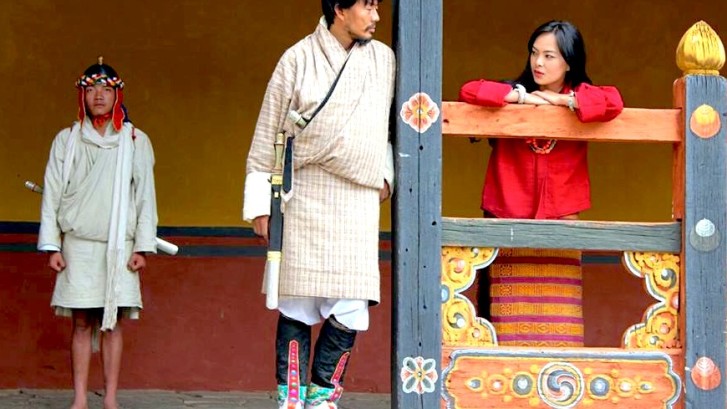The policy will also cover regional tourists that is increasing by the day
To address emerging challenges and trends in the tourism industry, a team from the World Bank is reviewing Bhutan’s tourism policy.
Tourism Council of Bhutan officials said a team of tourism specialists visited the country early this month to get an understanding of the tourism industry.
With tourism industry across the globe witnessing new trends and challenges, council officials said the World Bank’s technical team would address similar issues in Bhutan’s tourism industry.
“The team would study the current tourism policy and carry out desk research to recommend appropriate measures and consider the view of the stakeholders for the benefit of the tourism industry,” a council official said.
As part of the review, council officials said the team would look at all tourism related policies and regulations. In doing so, the team is expected to come up with a policy to govern regional tourists as well.
The review comes at a time when the National Council’s economic affairs committee is also reviewing the tourism policy to address issues of seasonality, equal distribution and spread of income and benefits. Also, the Association of Bhutanese Tour Operators as well as the Hotels and Restaurants Association of Bhutan are also reviewing the policy.
According to the council, tourism is a vibrant business with high potential for growth and further development. The government strongly adheres to a policy of ‘high value, low impact’ tourism, which serves the purpose of creating an image of exclusivity and high yield for Bhutan.
The principle of “high value, low volume” has been the overall tourism policy since 1974, which later changed to “high value, low impact” in 2008.
Although an important sector, the industry is not governed by an Act or a proper policy or a master plan even today. The tourism bill that was drafted a few years ago still remains to be discussed.
Council officials, however, said that the tourism strategy, 2013 and tourism master plans 1986 and 2005 do exist.
A council official said that most stakeholders take the master plan as an annual report. “A master plan is a roadmap and not an annual report and as for the strategy, we’ve activities under the Plan period,” he said.
However, most of the tourism stakeholders like hotels, guides and tour operators are not aware of the master plan and those who are argue that it is not implemented accordingly, indicating communication gaps between the stakeholders and the council.
For instance, tour operators said that as per the tourism master plan 2005, the tariff system was supposed to be different and the other stakeholders were supposed to lead the marketing while the council was to do the overall promotion of Bhutan as a destination.
However, stakeholders said that many of the recommendations of the master plan have not materialised even today.
Today, there are more than 1,300 tour operators that market the same product or package for both cultural and trekking tourists.
In 2013, the council submitted the draft national tourism policy 2012 to the Gross National Happiness Commission (GNHC) for screening. However, the policy did not come through and was never put up again.
The tourism policy protocol report submitted to the GNHC stated that the national tourism policy was developed in 2005. The policy was developed together with the tourism bill. The tourism policy was expected to guide all tourism activities, in line with the principle of high value, low impact principle.
However, tourism stakeholders welcome the council’s move to review the policy, which they said was long overdue.
The guides’ association and hoteliers say that the policy must ensure equal distribution of power and income within the industry. They said that in the existing system, it’s tour operators who make all the decisions and take the lion’s share of the minimum daily tariff.
Some suggested that there be a change in the existing principle of high value, low impact and that the minimum daily tariff of USD 200 and 250 be done away with. Others said that for tourism benefits to trickle down to the grassroots, there was a need for a structural change.
However, a majority of tour operators support the high value, low impact principle but point out that the industry is in a dire need of a vision and strategy. To address sustainable tourism, tour operators said a master plan or policy has become essential.
Since tourism activities were privatised in the ‘90s, tourism business started with 15 government-trained guides, 33 operators, a handicraft shop, and two government-owned hotels. Today, there are over 2,300 guides, 1,600 tour operators and 123 hotels in the country.
Contributed by: Kinga Dema (Kuensel)

